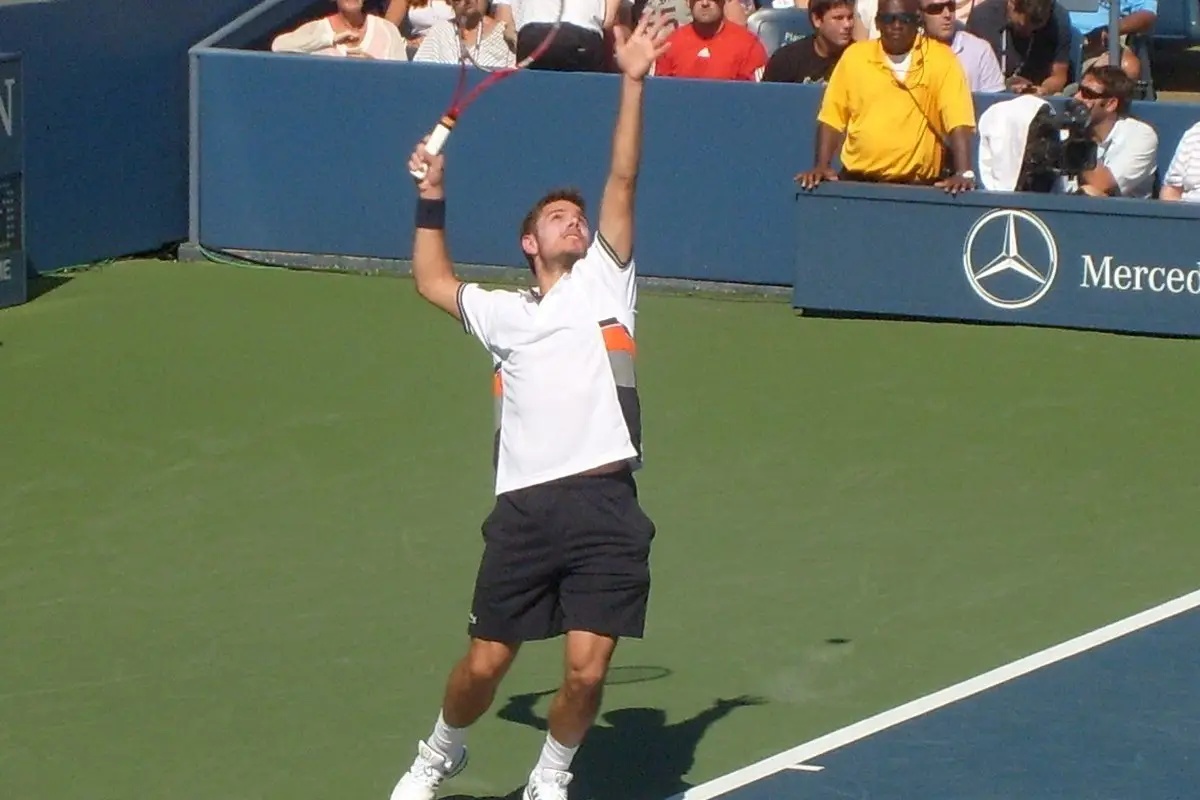If you’ve ever watched a professional tennis match, you’ve undoubtedly heard it—the sharp, almost primal noise that echoes through the stadium with every swing of the racket. Tennis players grunting has become as much a part of the game as a well-executed serve or a blistering forehand. But why do they do it?
Tennis players grunt primarily for three reasons:
1. Enhancing Performance
One of the primary reasons tennis players grunt is to enhance their performance. When a player hits the ball, especially with powerful strokes like serves and groundstrokes, they exert tremendous force. Grunting can help them release this pent-up energy more efficiently. It’s akin to how martial artists exhale forcefully when striking, stabilising their core and maximising power.
Studies have shown that grunting can increase the speed and power of a player’s shots. The act of grunting forces them to exhale forcefully, which, in turn, helps them contract their core muscles more effectively. This added stability allows players to transfer more power from their legs and torso into their shots. Grunting becomes a crucial part of their kinetic chain, helping them generate the force required to control the ball and make precise shots.
2. Intimidating Opponents
Another reason for grunting on the tennis court is psychological warfare. Tennis is not just a physical game but also a mental battle. Players use grunting to intimidate their opponents, disrupting their focus and concentration. The loud, sudden noise can startle the opponent, causing them to lose their rhythm and composure.
Intimidation through grunting is a strategy many top players employ, both consciously and subconsciously. When facing a player known for their loud grunts, opponents may become more anxious, leading to unforced errors and an overall decline in performance. This psychological edge can make the difference in a close match, and as such, grunting becomes a valuable tool in a player’s arsenal.
3. Involuntary Response to Exertion
While some players may use grunting strategically, for many, it’s a natural and involuntary response to the game’s physical demands. When you watch a tennis match, pay close attention to the timing of the grunts. You’ll notice that they often coincide with the player’s physical exertion – the moment they strike the ball. This suggests that grunting is not a deliberate tactic for everyone but a byproduct of the intense physical effort required in tennis.
The phenomenon of involuntary grunting is supported by scientific research. Studies have shown that grunting tends to be more prevalent among players who exert more significant force in their shots. This indicates that it may be a physiological response to the need for increased oxygen intake and core stability during high-intensity moments in the match.
Evolution of Grunting in Tennis
The practice of grunting in tennis has evolved over the years. It was only sometimes as prominent as it is today. In the early days of tennis, silence on the court was the norm. However, as the sport became more physically demanding and competitive, players began incorporating grunting into their game. It started as a subtle exhale but gradually developed into the distinct and often loud grunts we hear today.
Some argue that the evolution of grunting in tennis is partly due to the introduction of technology like powerful rackets and faster courts. These advancements have led to faster-paced rallies and more aggressive shot-making, which, in turn, has increased the physical demands on players.
The Controversy Surrounding Grunting
Despite its prevalence in tennis, grunting remains a topic of controversy. Critics argue that it disrupts the sport’s traditional decorum and is a form of deception. They claim players use it to gain an unfair advantage by distracting their opponents.
Various tennis authorities, including the Grand Slam tournaments, have introduced rules and guidelines regarding excessive grunting in response to this controversy. However, enforcing these rules can be challenging, as it’s often difficult to determine what constitutes excessive grunting and what is simply a player’s natural response to exertion.
Related Articles
Who Has Won All 4 Grand Slams In The Same Year?
How Much Do Pro Tennis Players Make?


